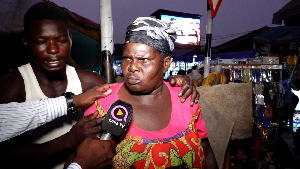Tarkwa (W/R), June 3, GNA - Dr Anthony Akoto Osei, Deputy Minister of Finance and Economic Planning (MOFEP), has observed that statistical information with respect to mineral revenues generated for the economy has not been made available to the public.
He said the little information on mineral revenue has been the source of confrontation between some mining communities and mining companies.
Dr Osei said, whilst steps were being taken to rectify this, it has become necessary to embark on Extractive Industries Transparency Initiative (EITI) to compliment the efforts at ensuring transparency for all stakeholders in the industry.
He said this in an address read on his behalf at a workshop on EITI held at Tarkwa on Friday. It was under the theme: " Our Mineral, Wealth, Equal Stake And Transparency For All".
Organised and sponsored by MOFEP, Ministry of Lands, Forestry and Mines, Minerals Commission and Chamber of Mines, the Workshop brought together traditional rulers, district chief executives and presiding members of various district assemblies in the Western Region. EITI is a voluntary initiative, supported by a coalition of companies, governments, investors and civil society organizations. Dr Osei said transparency over payments and revenues increases the likelihood that revenues generated from the mineral resources tended to be used in an efficient and equitable manner. He said it also assisted governments in financial and macro-economic planning, while reducing the risk of diversion or misappropriation of resources, saying, "the EITI focuses on both the operating mines' payments and government revenues and their disbursements.
The Deputy Minister said the mining industry contributed about three per cent (3%) of total mineral exports as royalties and 25 per cent corporate tax on profits, as government revenues out of which sizable proportions of these royalties were re-cycled into the mining communities through their respective district assemblies and stool lands for development projects.
Explaining how the mineral royalties was shared to the beneficiaries, he said, the Internal Revenue Service collected this categories of revenue on behalf of Government of which 10 per cent was paid to the Administrator of Stool Lands for disbursement.
Dr Osei said 10 per cent of the said amount was taken as administrative expenses by the Administrator of Stool Lands, 55 per cent of the remaining 90 per cent was paid to the district assembly, where mining activities took place, 25 per cent of the 90 per cent was paid to traditional councils and 20 per cent also to the stools. He told the district assemblies, traditional councils and the various stools, DCEs and traditional rulers to ensure that these resources were used for the development of their communities.
General News of Saturday, 3 June 2006
Source: GNA












